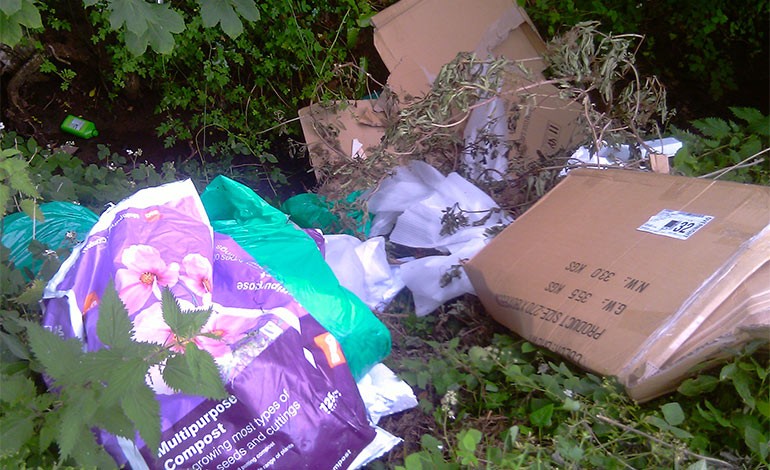A man who was offering an unregistered waste collection and disposal service has been prosecuted in connection with a fly tipping offence following a B&NES Council investigation into waste that was dumped near Camerton.

Fly tipping has become an increasing problem in B&NES | Library image
Mark Spicer, 25, of St Johns Court, Keynsham, pleaded guilty to a waste duty of care offence under section 34 of the Environmental Protection Act 1990, at Bath Magistrates Court on Wednesday, 8th June.
He was ordered to pay a £500 fine, £350 in costs and a £50 victim surcharge.
Council investigations found that Mr Spicer was running an unregulated waste collection and disposal business and having been paid to collect and dispose of the waste he sold the van with the waste inside it.
That waste was then found fly tipped on 12th March 2015 on Paulton Lane and included a pink bath, small pool table, pushchair and general waste. He was prosecuted for failing to keep control of his waste.
Councillor Martin Veal (Conservative, Bathavon North), Cabinet Member for Community Services, said: “Fly tipping is illegal and we will do everything we can to investigate this crime and prosecute those responsible.
“It causes a blot on the landscape of our beautiful surroundings and those who do not dispose of their waste responsibly ruin the quality of life for every other law-abiding citizen.
“In addition, it costs the Council thousands of pounds per year to clear up – money which could be better spent on providing essential front line services elsewhere.
“We hope that our recent addition of warning signs and CCTV in fly-tipping hotspots will act as a deterrent, and we will continue to seek to prosecute anyone who does break the law.”
The Council is taking steps to tackle fly tipping across the district and installed warning signs and CCTV in hotspots in April.
Warning signs are in place in these hotspot areas to ensure the public are informed that fly-tipping is a crime and that CCTV may be in use in the area.
The warning signs will also serve as a deterrent to those considering fly-tipping.
The exact number and positioning of the signs takes into account how the public access the area.
Footage will be encrypted and only accessed by the Council for prosecution purposes, where an offence is believed to have been committed, in accordance with the Data Protection Act (1998).
If no fly-tipping/crime has been recorded the footage will be recorded over.



